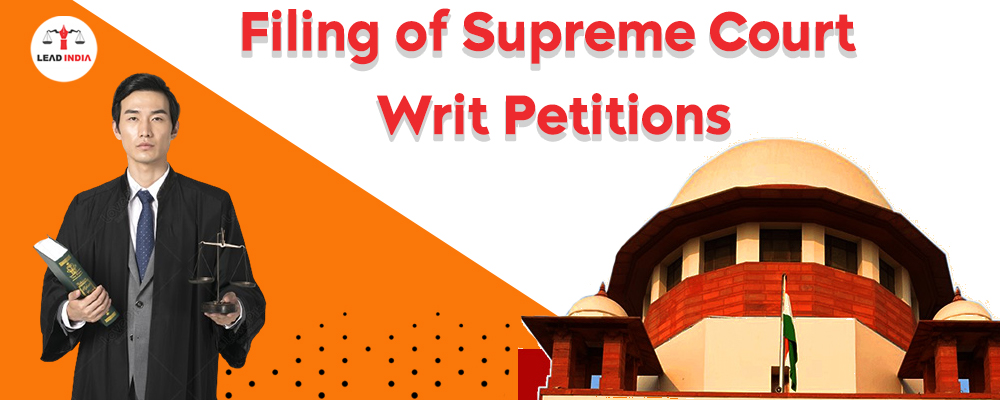The Indian Constitution grants its inhabitants a number of rights. Fundamental rights are among the most important for the ethical and intellectual growth of Indian citizens. The Indian Constitution’s Part III mentions certain rights.
Supreme Court Writ Petitions: About
- A writ is a type of legal document that resembles a written injunction that a higher court issues. When an Indian citizen’s fundamental rights are violated, these writs are granted to subordinate courts or to specific individuals.
- The Indian Constitution’s Article 32 grants the Supreme Court the ability to issue writs to authorities or entities. This implies that they are able to use the aforementioned constitutional clause to issue an order to the Supreme Court of India. This provides the authority with a way to file a complaint or seek legal recourse for its complaints or grievances against the government or any other individual or organization.
- Any person whose fundamental rights are violated is entitled to use this right.
Need A Legal Advice
The internet is not a lawyer and neither are you. Talk to a real lawyer about your legal issue

Supreme Court Writ Petitions: Who Can File?
- Any individual who believes that the State has violated their fundamental rights may initiate a writ petition.
- Any public-spirited individual, even if his personal Fundamental Right has not been violated, may submit a writ petition in the interest of the public under a Public Interest Litigation.
Supreme Court Writ Petitions: Procedure to File Offline
In order to submit a writ petition to the Supreme Court, the following steps must be taken:
- Initially, the person who feels wronged must go to a certain organization with the required paperwork, including proof of identity, proof of residence, and photos, among other things.
- The petition must then be drafted with legal assistance. The document contains the name, address, and circumstances that led to the infringement of the offended party’s fundamental rights.
- The petition’s draft is then sent to the Supreme Court following this procedure.
- The Supreme Court will next schedule a hearing date, at which point it will accept the petition and send a notice to the opposing party. A date is then provided to ensure that both parties will be present.
- Ultimately, upon hearing from all sides, the Supreme Court renders a decision and provides the appropriate remedies.
Supreme Court Writ Petitions: Procedure to File Online
- Visit the Supreme Court of India’s website by clicking the link.
- Select the E-FILING option situated beneath the HOME menu.
- If this is the very first time a petition is being filed, click “New Registration” in the far-right corner of the screen. If you have already registered, go directly to the “Login” menu.
- Select “Petitioner in Person” when prompted for “User Type,” and a form will open.
- Click the “Sign Up” button at the bottom of the page after entering the necessary information.
- Return to this page for “E-FILING” after finishing the registration process.
- Select “Login” from the menu.
- It will display the menu below. Complete the necessary fields.
- A menu will show up after you check in. Select “New e-Filing.”
- The page that follows will appear. Complete the necessary fields. Click the “Lower Court” button if the petition is contesting a lower court’s ruling. In a similar manner, select each category and enter the necessary data.
- Select “Petition with Other Document” if you want to attach any other papers to the petition.
- An application number will be provided following the completion of all necessary fields and payment.
Numerous rights are granted to us by our constitution. Fundamental rights are among the most significant rights guaranteed by our constitution. These rights are crucial for personal growth, as their name implies. Since rights exist, it is possible for them to be violated. Thus, under Article 32, a person may file five different forms of writs before the Supreme Court to defend these rights.
One can talk to a lawyer from Lead India for any kind of legal support. In India, free legal advice online can be obtained at Lead India. Along with receiving free legal advice online, one can also ask questions to the experts online free through Lead India.





 Talk to a Lawyer
Talk to a Lawyer